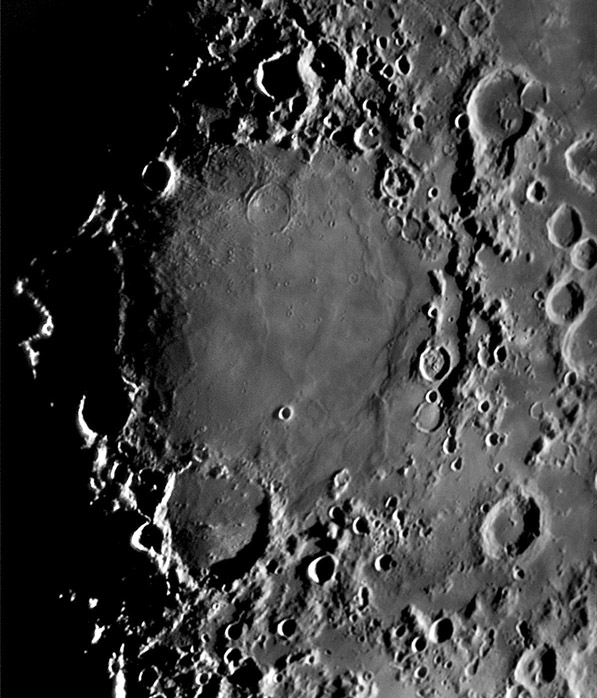Nectarian Ridges

|
image by Howard Eskildsen, Ocala, Florida.
I love images that show things I've previously overlooked, and Howard's recent image joins that select group. Nectaris is known as a dry basin, that is, it has a relatively small amount of mare lavas on its floor. Because of that it has essentially no volcanic features such as sinuous rilles and domes. But it does have some mare ridges that are thought to form by compression - ridges are low angle faults. Howard's image reveals two families of ridges on the east side of Mare Nectaris, and one - seen as a long illuminated curved ridge - on the west. On the east the near shore bench bends around to the south, finally touching the rim of Fracastorius. Interestingly, the fracture boundary between the higher old floor of southern Fracastorius and the lower mare to the north is the continuation of the ridge boundary. One other comment about the east mare ridges. There are two types of ridges - the gentle step down from the bench, and a broader more typical mare ridge that seems to be over-ridden by the bench edge.
Chuck Wood
Technical Details
2013-01-17, 00:13 UT. 6" f/8 refractor, Explore Scientific lens + 2X barlow + IR and V-block filter + DMK 41AU02.AS.
Related Links
Rükl plate 58
21st Century Atlas chart B4.
|
Yesterday's LPOD: The Heavens Smiled
Tomorrow's LPOD: Misplaced Dot
Register, Log in,
and join in the comments.

